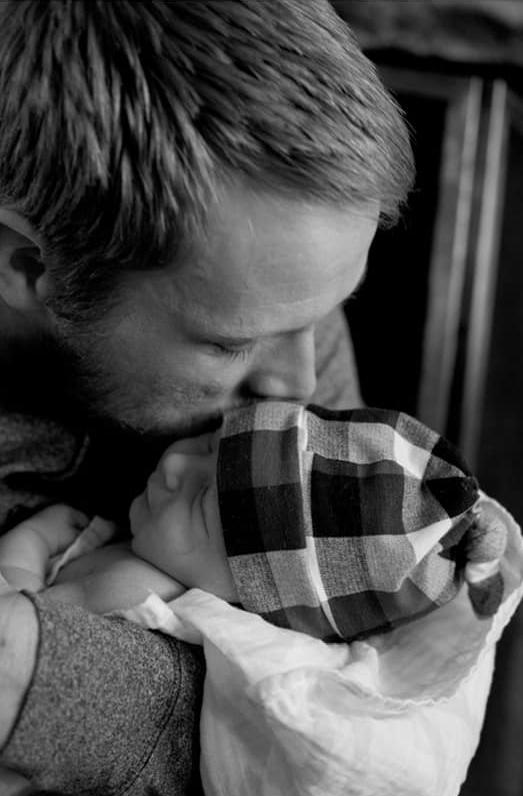Just for Dads

Questions Asked by Dads
No one really tells men what to expect. Here are some insights, tips, tricks, and no-nonsense advise for mastering and navigating pregnancy and fatherhood. I have collected the most frequently asked questions dads-to-be want to know answers to.
My wife wants to have our baby outside of the hospital, is it safe?
The easy answer is YES! A mom that has been cleared by her midwife after doing a medical history, and who continues to be healthy along with her baby through her pregnancy is safer birthing outside of the hospital than inside. The reason is because the home-birth mom is an active participant in her care, and is not in danger of receiving unnecessary interventions.
Isn’t birth messy? In the hospital, the mess magically disappears, but what happens if we have our baby at home?
Your midwife has a system for birth cleanup just like hospital staff does. Sure, your help would be appreciated at certain points, but for the most part, your midwife and her assistant(s) will take care of the cleanup. When all is said and done, you won’t even know a birth happened in your home! (Also see this question answered in FAQs page.)
What happens if a dad is scared of blood?
You will have 9 months of care provided by one midwife who makes time to listen to all your concerns and work through plans that make everyone comfortable with the planned birth. Some dads want to catch their babies, and that is the plan from the beginning, but in the end, he chooses to stay at the mom’s head and that is fine. Sometimes the opposite happens, but because mom, dad and midwife have developed a strong relationship built on trust, it will be easy to know what is the right situation when the time comes. And, if the dad does get faint, he is welcome (and encouraged) to take small food/water breaks to keep his strength up, and the midwife and her assistants will take care of him to make sure both mom and dad are doing well.
Does labor really go on for a long time?
1st time mom’s usually labor longer than moms who have had babies before, but the average labor lasts about 12 hours. A lot of the time isn’t the hard labor that everyone thinks of though, since most people only know of birth from Hollywood’s perspective. Birth really is 4 minutes of rest and 1 minute of work in that pattern until the end when it’s a lot of work for a little while. The dad will usually spend his time offering the mom something to drink or eat, rubbing her back or just being with her. It is important to spend time talking through expectations with your significant other before labor begins.
How will I (as the Dad) know how to help or what to do?
The best way to be prepared is to attend a childbirth class (one recommended by your midwife so that they teach birthing the way you plan to). Another good way is to write down questions that you come up with during the week and bring it with you to your appointment. A couple of points to get you started though follows:
- A laboring woman is always right.
- Don’t ask a woman questions during a contraction. She will be annoyed with you.
- Most women do not appreciate jokes when they are in labor.
- Most women do not like their bellies touched during a contraction.
- Don’t go to sleep unless she gives you the OK. She is working hard and has to stay awake. She will expect the same from you.
- If something helps her during contractions (like rubbing her back), start it as soon as the contraction begins. Starting half way through a contraction is not helpful.
- Laboring women are sometimes only able to get their thoughts across in one or two words and are often very direct in labor. If she tells you to STOP doing something stop. If she tells you to do something, do it right away.
- She needs encouragement. Tell her she is strong and doing a good job.
My wife has talked about wanting a doula at the birth, but I (as the dad) don’t understand why a doula would be needed. Isn’t the midwife and her assistant enough?
In most home-birth settings a doula isn’t as necessary as she would be in a hospital birth setting. In a hospital, a doula is the mediator between the wishes of the parents and the hospital staff, translating the medical lingo, but at home, the midwife and the parents are a team, and the birth will happen the way the parents want it to without unnecessary interventions. However, a doula can still be a wonderful addition to the birth team, and can provide relief to the dad in the matters of providing support to the mom and is already knowledgeable about the things the parents learned at the childbirth classes which can relieve some of the pressure that the parents may otherwise feel. An out-of-hospital birth tends to be the favorite setting for most doulas.
What happens after the birth?
- Tell your wife you love her, and are proud of her.
- Some dads give their wife flowers, chocolate or a special gift to commemorate the special event.
- Help to care for the baby. You can’t nurse the baby, but you can hold the baby so your wife can sleep. Arrange for someone else to help so you can both get some rest. It can be a trusted friend, a parent or even a postpartum doula.
- Hold the baby so she is able to take a shower.
- Watch for signs of unusual sadness that might indicate postpartum depression.
